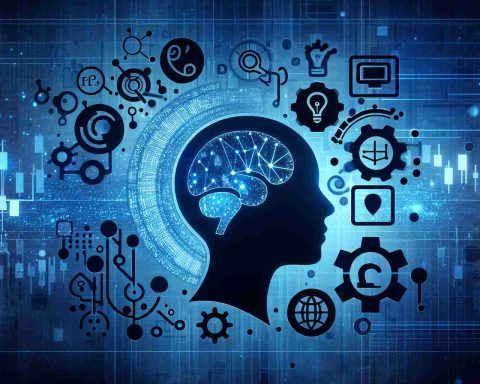Microsoft’s Asia Research Institute is joining forces with the Shanghai Mental Health Center to harness artificial intelligence in the treatment of Alzheimer’s disease. As society witnesses a significant increase in the elderly population, conditions like Alzheimer’s, which affect memory, thinking, and behavior, are becoming mounting health concerns. Although there is currently no definitive cure for Alzheimer’s, researchers are tirelessly working to find ways to slow its progression and enhance the quality of life for those affected.
The collaboration between Microsoft and the Shanghai center aims to develop an AI-based cognitive training framework. This initiative seeks to introduce innovative digital training methods that could potentially help delay the decline in cognitive functions. By leveraging AI technology, the project promises to create personalized cognitive training schemes that adjust to each patient’s needs, informed by vast amounts of data analysis.
Traditional cognitive training methods often face challenges such as high costs and limited personalization, affecting their overall effectiveness. In contrast, AI holds promise for more interactive and engaging therapeutic experiences. By offering dynamic adjustments based on patient progress and incorporating elements like interactive gaming, this new approach may significantly bolster patient engagement and enhance training outcomes. The hope is that through these advances, patients will benefit tremendously from more tailored and interactive care solutions.
Innovative AI Approaches in Alzheimer’s Treatment: Exploring New Frontiers
As the global population continues to age, Alzheimer’s disease presents a pressing healthcare challenge. Recent developments highlight the role of artificial intelligence (AI) in transforming treatment methodologies for this neurodegenerative condition. While collaborations, such as that between Microsoft’s Asia Research Institute and the Shanghai Mental Health Center, are crucial, a broader spectrum of AI applications is becoming increasingly relevant to Alzheimer’s treatment.
What are the primary questions surrounding the use of AI in Alzheimer’s treatment?
1. How effective are AI-driven therapies compared to traditional methods?
– AI-based therapies, utilizing machine learning algorithms and personalized data, often show promise in increasing engagement and adaptability. Preliminary studies suggest potential improvements in cognitive functions and patient compliance, though comprehensive clinical trials are necessary to validate these claims.
2. What ethical considerations arise from using AI in healthcare?
– Ethical challenges include data privacy concerns, algorithmic bias, and the implications of AI decision-making in patient care. Ensuring patient confidentiality and the fair application of AI technologies are critical discussions among researchers and healthcare providers.
3. Can AI predict the onset of Alzheimer’s disease?
– AI’s capabilities in analyzing patterns in large datasets may enhance early detection of Alzheimer’s. By detecting subtle changes in cognition through wearable devices and neuroimaging analysis, AI can potentially forecast the onset of the disease, though more robust models are needed for accuracy.
Key Challenges and Controversies
One significant challenge lies in the integration of AI within existing healthcare frameworks. Healthcare professionals may require extensive training to utilize AI tools effectively, representing a time-consuming and costly hurdle. Additionally, reliance on technology raises questions about the human touch in patient care, particularly in empathetic fields like mental health.
Advantages and Disadvantages of AI in Alzheimer’s Treatment
Advantages:
– Personalization: AI can tailor therapy programs to individual patients by analyzing real-time data and adapting interventions accordingly, which may enhance treatment efficacy.
– Accessibility: Virtual platforms enabled by AI expand access to therapy, essential for patients in remote areas or those with mobility issues.
– Predictive Analytics: Leveraging AI algorithms can identify risk factors and predict disease progression, allowing for early interventions.
Disadvantages:
– Dependence on Technology: An over-reliance on AI may overshadow vital human interactions in therapeutic settings, potentially impacting patient well-being.
– Data Privacy Concerns: Handling sensitive health data raises serious privacy issues, necessitating robust security measures to protect patient information.
– Cost Barriers: While AI technologies can reduce long-term costs, the initial investment in technology and training may be significant for healthcare facilities.
Conclusion
The landscape of Alzheimer’s treatment is evolving with the advent of innovative AI applications. While the prospects are exciting, navigating the associated ethical challenges and practical implications remains crucial. The success of AI in this domain will largely depend on research advancements and the commitment of healthcare systems to incorporate these technologies judiciously. For further reading on topics related to AI in healthcare, visit Healthcare IT News and American Medical Association.

















